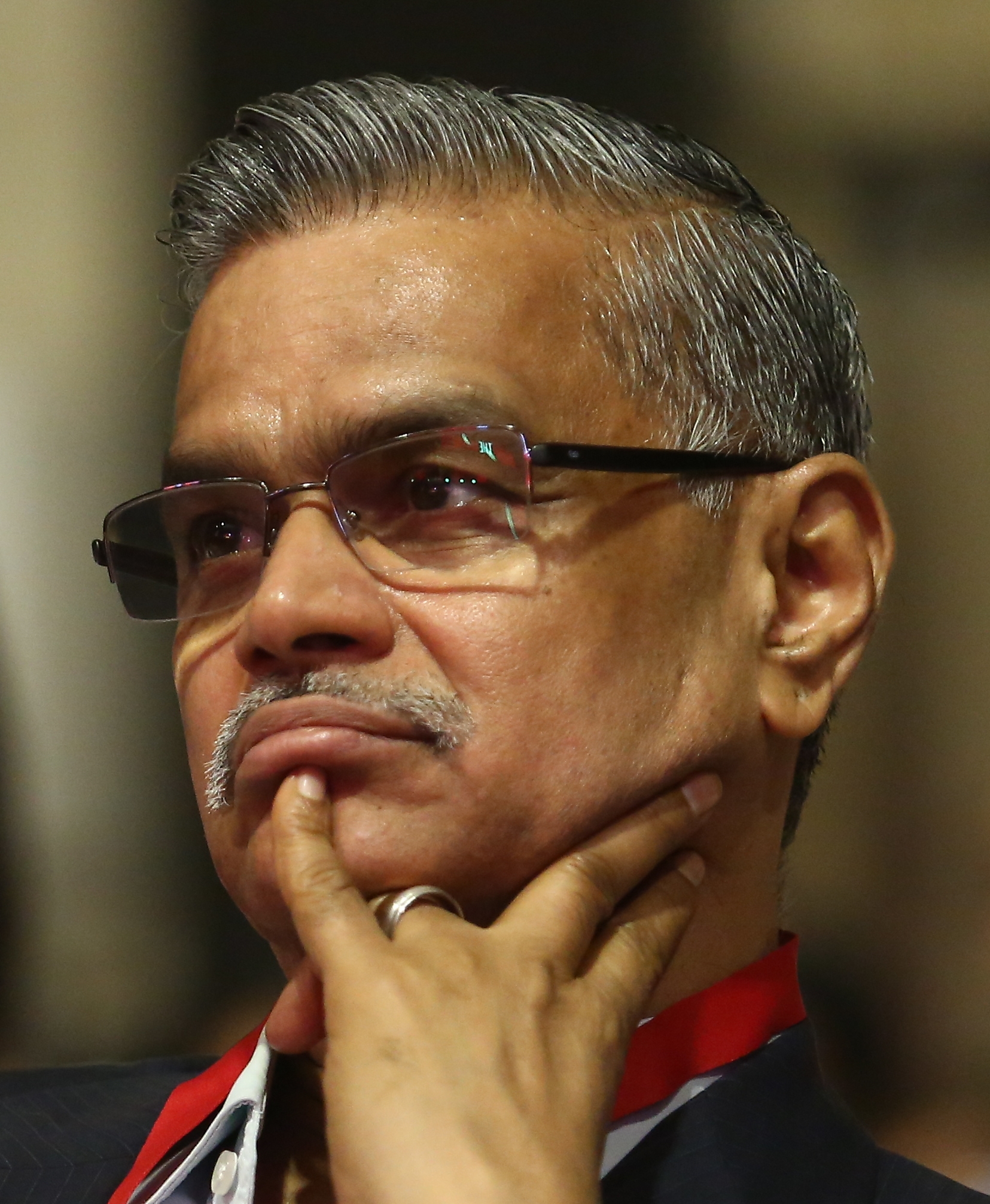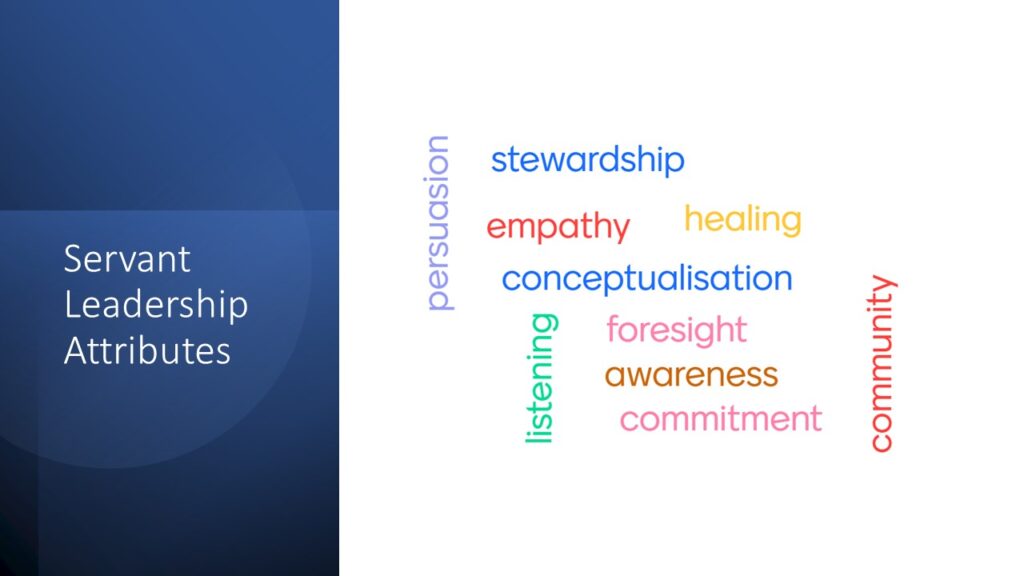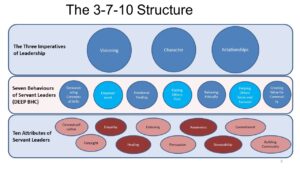Our efforts have always been to answer the ‘how” of Servant Leadership. That is why we came up with the 3-7-10 framework. This framework is explained in another blog. This framework is made up of
- Three Imperatives (descriptions can be found here)
- Seven behaviours we call DEEP BHC (descriptions can be found here)
- Ten attributes
In the blog we will look into the ten attributes.
The 10 attributes used are the original ones propounded by Robert Greenleaf (1), who is known to be the father of modern-day Servant Leadership concept. These were further explained by Larry Spears (2). These are categorized (By Dr. Madana Kumar, PhD) into three categories, viz; Vision Related, Character Related and Relationships related.
Vision Related
- Foresight: A characteristic that enables Servant-leaders to understand lessons from the past, the realities of the present, and the likely consequence of a decision in the future. It is deeply rooted in the intuitive mind.
- Conceptualization: Servant-leaders seek to nurture their abilities to “dream great dreams.” The ability to look at a problem (or an organization) from a conceptualizing perspective means that one must think beyond day-to-day realities. While we must focus on day to day realities, we should be able to look beyond them and see beyond what is there today. Servant-leaders must seek a delicate balance between conceptualization and day-to-day focus.
Character Related
- Awareness: Self-awareness is always the first step to leadership. We can change and improve when we know our strengths and weak areas. Servant Leaders have a high sense of self-awareness, and they constantly enhance this through a continuous and genuine feedback mechanism
- Healing: Learning to heal is a powerful force for transformation and integration. One of the great strengths of servant-leadership is the potential for healing one’s self and others. This requires us to master the concept of forgiveness, and a deeper understanding of grace.
- Stewardship: Servant Leaders are expected behave like stewards of the things on earth and not as owners. Servant Leaders are also expected to understand that each one has been given different roles and all roles have an equally important part to play in an organization and in the world in general.
Relationships Related
- Empathy: Do not reject anyone as people, even when forced to reject their behavior or performance. Are we able to put ourselves in the shoes of others? Are we able to feel the pain that they go through?
- Listening: Ability to listen receptively to what is being said (and not said). Getting in touch with one’s inner voice, and seeking to understand what one’s body, spirit, and mind are communicating.
- Commitment to the Growth of Others: People have an intrinsic value beyond their tangible contributions as workers. Committed to a personal, professional, and spiritual growth of each and every individual within the organization. Servant Leaders invest in the holistic development of team members as against the traditional trend of investing only in “monetizable” skills.
- Building Community: The shift from local communities to large institutions has changed our perceptions and caused a sense of loss. Servant Leaders seek to identify a means for building community among those who work within a given organisation. This ultimately makes them better Community Citizens outside the organisation.
- Persuasion: Servant Leaders do not use positional authority in making and communicating decisions. They seek to convince others, rather than coerce compliance. They demonstrate all the other nine attributes to reach a position where the followers choose to walk with the leader by their own free will.
_____________________________________________________________
References
- Greenleaf, Robert K, 1977: Servant Leadership: A Journey into the Nature of Legitimate Power and Greatness. New York NY: Paulist Press
- Spears, Larry C & Lawrence, Michele (eds) Focus on leadership: servant-leadership for the twenty-first century; John Wiley and Sons
_________________________________________________________________
 The author Dr. Madana Kumar, PhD is the Servant Leadership Evangelist at Leadyne. You can connect with him here or contact him here.
The author Dr. Madana Kumar, PhD is the Servant Leadership Evangelist at Leadyne. You can connect with him here or contact him here.




Comments are closed.